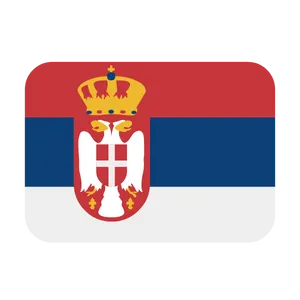St. Archangel Gabriel Serbian Orthodox Parish
WELCOME TO OUR PARISH!
WELCOME TO
OUR PARISH!
What is Serbian Orthodox Christianity?
Welcome to St. Archangel Gabriel Serbian Orthodox Parish, a spiritual home dedicated to the rich traditions of Serbian Orthodox Christianity. As part of the Serbian Orthodox Church, we share in the timeless beliefs of Eastern Orthodoxy, celebrating the sacraments, observing fasts, and honouring the ancient Julian calendar, which keeps our holy days aligned with tradition. Our parish, named after St. Archangel Gabriel—the divine messenger and protector—embraces his qualities of strength, faith, and unwavering guidance, inspiring us to live in unity and devotion.
Welcome to St. Archangel Gabriel Serbian Orthodox Parish, a spiritual home dedicated to the rich traditions of Serbian Orthodox Christianity. As part of the Serbian Orthodox Church, we share in the timeless beliefs of Eastern Orthodoxy, celebrating the sacraments, observing fasts, and honouring the ancient Julian calendar, which keeps our holy days aligned with tradition. Our parish, named after St. Archangel Gabriel—the divine messenger and protector—embraces his qualities of strength, faith, and unwavering guidance, inspiring us to live in unity and devotion.
What is Orthodox Christianity, and how does it differ from other Christian denominations?
Orthodox Christianity is one of the oldest branches of Christianity, tracing its roots to the time of the Apostles. It shares core beliefs with other Christian traditions but differs in worship style, theology, and certain practices. The Orthodox Church emphasizes continuity with the ancient Church, preserving teachings and practices that date back to the early Christian community.
Orthodox Christianity is one of the oldest branches of Christianity, tracing its roots to the time of the Apostles. It shares core beliefs with other Christian traditions but differs in worship style, theology, and certain practices. The Orthodox Church emphasizes continuity with the ancient Church, preserving teachings and practices that date back to the early Christian community.
Do I need to be baptized or formally convert to participate in services and sacraments?
All are welcome to attend services and pray with us. However, full participation in the sacraments, particularly Communion, is reserved for baptized Orthodox Christians. Those interested in joining formally may need to undergo baptism or, if already baptized in another Christian tradition, receive chrismation after a period of catechesis, or instruction in the faith.
All are welcome to attend services and pray with us. However, full participation in the sacraments, particularly Communion, is reserved for baptized Orthodox Christians. Those interested in joining formally may need to undergo baptism or, if already baptized in another Christian tradition, receive chrismation after a period of catechesis, or instruction in the faith.
Are there special requirements for receiving the sacraments, such as communion?
Yes, the sacraments are approached with reverence and preparation. Orthodox Christians should prepare for Communion through prayer, fasting, and recent confession. Those interested in learning more about the requirements should consult with the priest for guidance on proper preparation.
Yes, the sacraments are approached with reverence and preparation. Orthodox Christians should prepare for Communion through prayer, fasting, and recent confession. Those interested in learning more about the requirements should consult with the priest for guidance on proper preparation.
How can I arrange a meeting with the priest to discuss my interest in joining?
You are welcome to contact the priest via our Contact Us page! The priest can guide you through any questions, explain the process of joining, and discuss next steps based on your specific interest.
You are welcome to contact the priest via our Contact Us page! The priest can guide you through any questions, explain the process of joining, and discuss next steps based on your specific interest.



